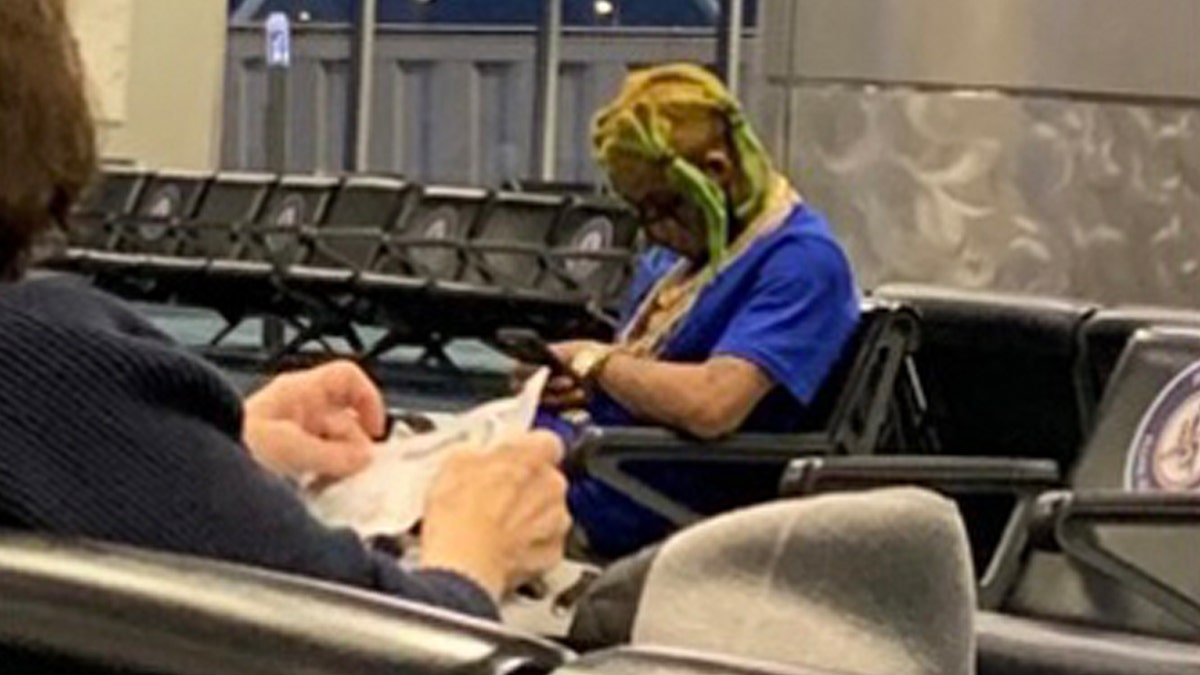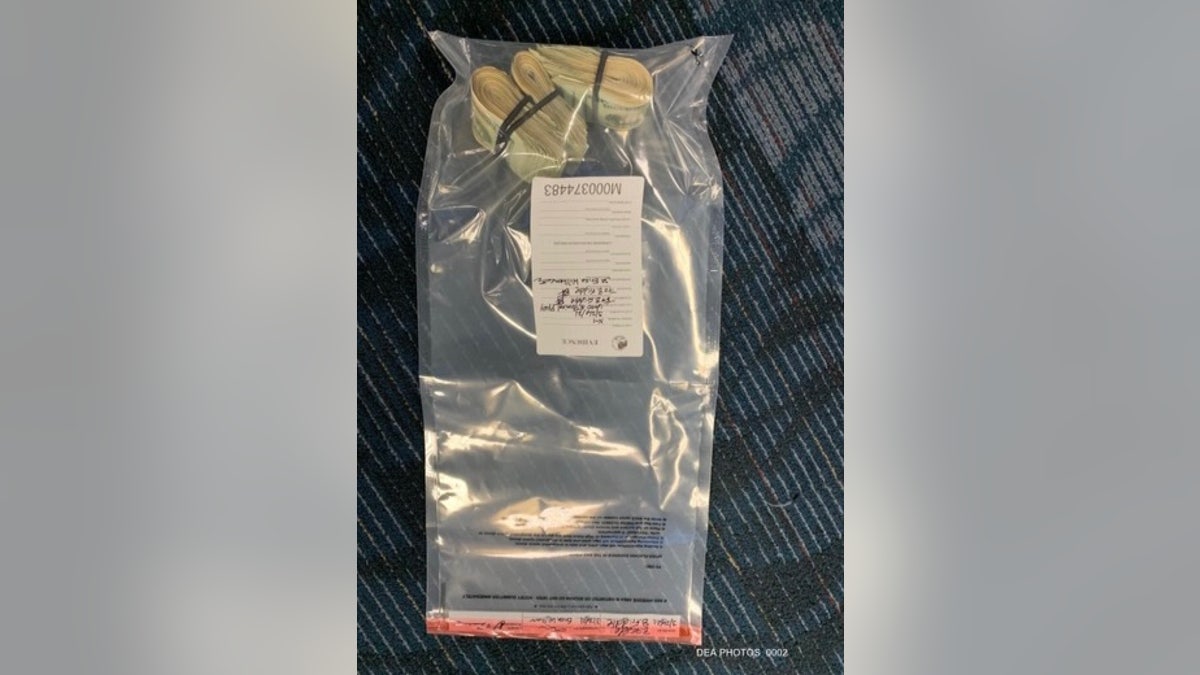Court orders DOJ to hand back this man’s seized money. How he lost anyway: ‘Cost me an arm and a leg’
After the DEA seized an innocent man's cash, Brian Moore sued the DOJ and won his money back. But a federal court is refusing his request to have his legal fees repaid.
Brian Moore was waiting to board a Los Angeles-bound plane with hopes that his trip would mark the start of a successful music career. But suddenly, federal agents descended on him and seized his money along with his opportunity.
"It was terrible, the worst experience of my life," Moore, 30, told Fox News. "They basically, in that one day, in those few minutes, ruined my entire music career."
Moore had never heard of civil asset forfeiture, which allows the government to seize and keep property it suspects is connected to criminal activity, until he found himself knee-deep in a complex, yearslong legal battle against the Justice Department. But even after he won and got his property back, a federal court rejected his request for the government to repay him $15,000 in legal fees.
WATCH MORE FOX NEWS DIGITAL ORIGINALS HERE
"You would think that the system we're working with is supposed to do what's right, but obviously there's loopholes," Moore said. "Sometimes innocent people end up having to suffer from it."
Moore was sitting by his gate at the Atlanta airport in March 2021 when two women approached him and said they were with the Drug Enforcement Administration (DEA). He was told to follow them, and moments later, several other agents dressed in plain clothes appeared and began interrogating him.
"The amount of things they asked me was crazy," Moore said. "They asked me if I had a bomb or anything that could make a plane crash."
"I didn't understand where that even came from. It was really confusing," he added. "I felt like some type of criminal or fugitive or like less than human."
The DEA agents asked if Moore had any illegal substances or money on him. He said he had recently sold his deceased grandfather's car for $8,500 and was bringing the cash to Los Angeles to fund his first music video.
DESPITE PROMISES TO CUT BACK, FED AND STATE GOVERNMENTS PRESS ASSET FORFEITURES

Brian Moore said "it's crazy" that federal agencies can target and seize assets from innocent people "based off of a look," like the DEA did to him. (Courtesy of Brian Moore)
"I explained to them where the money came from, how I had the money and what I was going to do, but they didn't believe me," Moore said. "They basically made me seem like I was some type of terrorist or criminal or something."
Moore initially denied the agents' requests to search his bag but eventually relented. They searched his bag in the middle of the airport and took his money with the belief it was somehow connected to drug crimes, then told Moore to board his flight.
Due to the DEA agents' plain clothes and because he never saw what looked like an official badge, Moore said he initially thought people imitating federal officers had robbed him. He flew back to Atlanta, spoke to his local police department and eventually called the DEA, which confirmed its agents seized his property using civil asset forfeiture.
"At that point, I realized it doesn’t seem like I'm gonna be able to do this alone," he said.
Like many others who fall victim to asset forfeiture, Moore was never charged with a crime.
"That's fairly typical for these airport interdiction seizures done by DEA," said Dan Alban, a senior attorney with the Institute for Justice, a nonprofit law firm. "The whole point of the seizure is to get the money off the person and then pursue it through civil forfeiture, which does not require any criminal charges, let alone a criminal conviction."
'LEGAL THEFT': TEXAS POLICE SEIZED MAN'S LIFE SAVINGS. NOW THE STATE IS PUTTING HIS CASH ON TRIAL
Because these forfeiture cases proceed in civil court, the property owner doesn't receive the same benefits a criminal defendant would, according to Alban, who's representing Moore in his fight to get his legal fees repaid.
"They're not entitled to an attorney, they're not entitled to the presumption of innocence, they're not entitled to take the Fifth Amendment," Alban said. "Because of that, the deck is really stacked against property owners in this system."

Moore said he initially thought the DEA agents who seized his property were people imitating federal officers robbing him. (Courtesy of Brian Moore)
After the seizure in the airport, Moore hired lawyers, filed a lawsuit and spent over a year in federal court proving his money wasn't connected to a crime.
The government didn't present any evidence that Moore’s money was connected to a crime and requested the court dismiss the case with prejudice, meaning the Justice Department couldn’t reopen the case. The judge ordered his money be returned.
"I don't really feel like I won because it still cost me an arm and a leg when I didn't even do anything," Moore said. "I wasn't wrong."
His legal fees racked up to $15,200. His attorneys requested repayment from the government, but the district court denied it.
THE FBI TOOK HER LIFE SAVINGS. NOW SHE’S FIGHTING TO HELP OTHERS GET THEIRS BACK.
Under the Civil Asset Forfeiture Reform Act (CAFRA), if a claimant substantially prevails in any federal civil forfeiture proceedings, "the United States shall be liable for reasonable attorney fees."
However, Alban told Fox News that in Moore’s case, the judge said he wasn't entitled to repayment because he didn't "substantially prevail" since the court had not ruled on the "merits" of the case.
"When you are defending your property in a forfeiture case, any win is a win," Alban said. "If you put on a good enough of a case that the government voluntarily dismisses your case with prejudice, you've won."
"The idea that he hadn't substantially prevailed because he didn't win on the merits makes no sense," he added.
Now owing nearly twice the amount of his original seized property, Moore got in touch with the Institute for Justice, which is appealing to the 11th U.S. Circuit Court of Appeals for the unpaid legal fees. Alban said he hopes to not only get his client the money he's owed, but to also set a precedent for similar cases moving forward so victims of civil asset forfeiture aren't deterred from fighting to get their property back.
CLICK HERE TO GET THE FOX NEWS APP
Moore said he still hasn't recovered from the experience or from being targeted and interrogated for his appearance. Moore, a young Black man, pointed out that he had green hair at the time of the seizure and was wearing a mask due to COVID-19 requirements.
"It is scary that they have the ability to do things of that nature freely with no accountability," he said. "I haven't even gotten an apology, like, ‘hey, we're sorry, we were wrong.'"
"I don't know what their idea was about me or what they thought I looked like, but we're here now," Moore added. "It's crazy that based off of a look, people can do whatever they want."












































